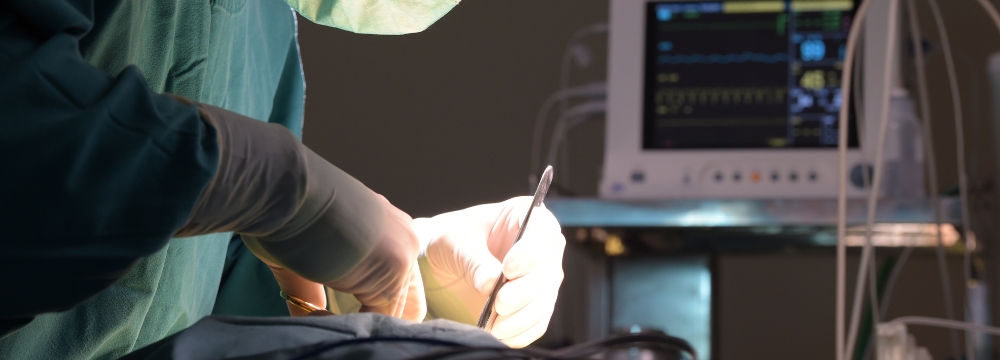Hernia
It’s a hernia. What’s so bad about that? Well, from an urgency standpoint, there are two different kinds of hernias, non-emergency and emergency and it is impossible to predict when a “run of the mill” hernia turns into an emergency. However, in this blog, we discuss the signs are of a hernia emergency that requires a trip to the ER or dialing 911, when you should speak to your doctor and how you can manage your hernia appropriately.
How does a hernia become an emergency? To understand this, you must know the anatomy of a hernia. The contents of your abdomen are kept in place by a thin but strong layer of tissue known as the fascia. When there is a weak point in the fascia, abdominal contents can push through. This hole in the fascia is what we know as a hernia. Contents of the abdomen pushing through the hernia defect in and of themselves are not an immediate concern other than the pain and potential lifestyle limitations that they may cause. However, if the hernia contents get trapped in the defect, known as incarceration or if their blood supply is cut off, known as strangulation, we have an emergency.
When blood is cut off to the contents of the hernia, they can die very quickly. If this happens, not only must the hernia be repaired, but the diseased portion of the abdominal contents must be removed too. This can be fat tissue or even part of the colon (large intestine). The bottom line? Emergency hernia surgery often comes with a higher risk of complications and may even lead to multiple surgeries to correct several follow-on issues.
Signs and symptoms of an incarcerated or strangulated hernia
Most patients with symptomatic hernias may feel a bulge or pain around the hernia. The pain can create a burning sensation, heaviness, dull throbbing pain or even sharp stabbing pain. Most often, the hernia retracts back into the abdomen when the patient lies down or takes pressure off the abdomen. When the hernia contents become incarcerated, they will not push back into the abdomen. In other words, there will be a permanent bulge and often significantly more pain than before.
While incarceration is problematic, strangulation is the biggest concern. When the abdominal contents become restricted to such a degree that blood flow is cut off, they begin to die. This usually causes significant, excruciating pain, redness in area of the hernia, fever and other general symptoms – fatigue, nausea and more. Incarceration and strangulation require a visit to the ER or a call to 911 as soon as possible to reduce the hernia and restore blood flow.
When should you visit your doctor?
If you have the signs or symptoms of an incarcerated or strangulated hernia, or any other potentially emergent situation, do not call your doctor, go straight to the ER or call 911. However, if the hernia reduces into your abdomen and is only mildly symptomatic, you should make a call to your general surgeon as soon as possible to schedule a consultation and understand the nature of the hernia. Your primary care physician may refer you to a general surgeon such as those here at MIIS. You can also contact us directly to schedule a consultation with one of our surgeons to learn more about your treatment options.
Which hernias are most problematic?
While incarceration and strangulation may seem very scary, they are generally quite rare. The most common hernias, including inguinal hernias, usually strangulate at a rate of about 1 to 2%. In other words, the chances of strangulation are quite low. However, a visit to your surgeon is still important as surgical correction may be recommended, especially if you are young and healthy, your lifestyle is being impeded by the hernia and/or you’re experiencing pain. Older patients with less abdominal musculature may be recommended for watchful waiting to see if the hernia worsens. Femoral hernias, those that extend into the thigh are the most likely to strangulate. In fact, approximately 20 to 30% of these hernias, left untreated, may strangulate. If you are diagnosed with a femoral hernia, you will be recommended for surgery as soon as possible to eliminate the risk of strangulation.
Ultimately, speaking to your doctor at the first signs of a hernia is the best way to ensure a proper diagnosis and repair. Hernia surgery performed electively and on your own schedule is often safer and more effective, with fewer postoperative concerns. Emergency surgery generally comes with a higher risk of complications. For more information or to get a diagnosis for a suspected hernia, please contact us and schedule a consultation with one of our surgeons.











